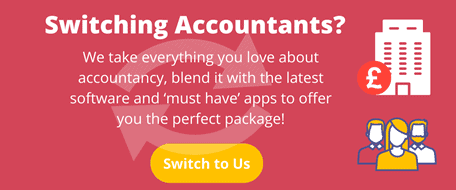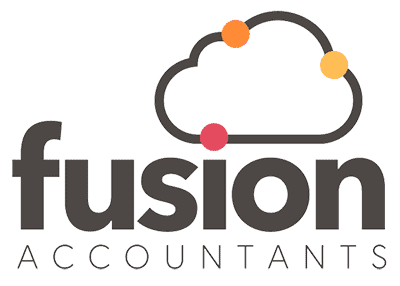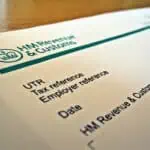What is a Benefit in Kind?
Reading Time:
Benefits in kind (sometimes referred to as ‘perks’) are benefits employees or directors receive from their company that are not included in their salary or wages.
You might not be surprised to hear that not all benefits in kind (BIK) are treated the same way from a tax perspective. There is a wide range of benefits in kind; some you are taxed on, others you are not, which leaves a bit of a grey area in between!
This article will set out what counts as a benefit in kind, the ones you can claim as an employer and how you should report them to HMRC.
A guide to Benefits in Kind
These are payments made in cash or through the provision of goods or services that you make to your employees outside of the PAYE system. For example, an employee’s reward package for doing their job will include a salary (money). However, it may also include a selection of benefits in kind (like a company car, medical insurance etc.).
As an employer, you may also have to pay extra National Insurance to HMRC, as you would have done if you had given the employee a cash bonus instead of the benefit. In addition, as an employer, you must tell HMRC about the benefits you provide for your employees, either by including the value of the benefit on the payroll or by completing the P11D form.
If you pay people through PAYE, then you are responsible for the payment of tax and NIC on their salaries. You are also responsible for paying tax and NIC on benefits in kind. Therefore, any cash payment you make to employees should also go through the PAYE system.
Examples of common benefits
This list is just some of the more common benefits. If you are ever unsure, we would always suggest that you talk to us first if you think of offering some form of benefit to your employees.
Company cars
Cars are probably the best-known example of a benefit in kind. If your employer allows you to use a car that they or the business owns or leases, often called a company car, and if you can use it privately and for business purposes, you usually have to pay tax on the value of the benefit.
Healthcare
Providing health insurance (such as BUPA) for your employees is a taxable benefit, as is paying for healthcare directly.
(Employers can provide free health screening each year and help with medical bills up to £500 if it helps to speed up the recovery of the employee).
Accommodation
If you pay for an employee’s accommodation expenses, these will be taxable. Suppose an employer provides accommodation for their employees, either rent-free or below-market rent. The difference between the rent you pay, if any, and the annual value or the rent that the employer pays will be a benefit. Please see the section on ‘Living accommodation’ below as there are some exceptions.
Home phones
HMRC is very clear that a phone line provided in the home by the employer will be taxable as there will inevitably be some personal use. See the section on ‘mobile phones’ below for a solution.
Meals
The rules around meals for employees are a bit more complex. For example, employers can offer subsidised or free meals for employees on-site and pay a subsistence allowance for employees working away from the office. Still, you can exchange other vouchers for meals for food or cash away from your place of work will give rise to a benefit.
Loans
The rules around meals for employees are a bit more complex. For example, employers can offer subsidised or free meals for employees on-site and pay a subsistence allowance for employees working away from the office. Still, you can exchange other vouchers for meals for food or cash away from your place of work will give rise to a benefit.
Which benefits are tax-free?

The good news is that there are a series of benefits for which no tax or NIC is payable. In most cases, there is no reporting requirement and so the admin burden is reduced on the employer too.
- Pensions – The government is keen to get people to make provisions for their retirement and introduced employer payments into a pension scheme non-taxable. There are rules around how much you can have paid in, but this will be a non-taxable benefit for most people.
- Provision of cycles -the government introduced the ‘cycle to work’ scheme, allowing employees to get a tax-free loan to buy a bike and related safety equipment. Employers can also buy cycles and lend them to employees with no tax implications, as long as they are used for travelling to and from work.
- Mobile phones – as long as the contract is in the employers’ name and private use are kept to a minimum, it is possible to provide free phone calls to employees.
- Electric car charging – electric cars are gaining in popularity, and employers are beginning to provide tax-free electric charging points for people to use.
- Car parking – for staff that must travel to work by car, a car parking space can be made available with no tax charge payable.
- Childcare – there are two schemes available, employer-provided childcare or vouchers up to £55 per week or the government’s direct childcare choices.
- Living accommodation – If accommodation is needed for the employee to carry out their duties or safety, it will be tax-free. A benefit will not arise if the accommodation meets exempt criteria IE: a pub landlord having to live above the pub. Special rules do apply, however, to directors of the company.
- Trivial gifts – Employers can now give employees gifts of up to £50 as long as they are not in cash or a cash voucher or given in return for work completed or yet to be started. The total value of trivial benefits an employee can be no more than £300 for the tax year.
- Homeworking allowance – There is a tax-free allowance of £6 per week, which can be paid to employees to cover the costs of working from home.
- Staff event allowance – Companies may provide events (like a Christmas or summer party) up to a total value of £150 per head per year.
There are many more examples of assistance that employers can provide to their employees and in all
There are two main reasons why a benefit would not be taxable:
- It is considered ‘trivial’.
- It is categorised as ‘tax-free’ by HM Revenue & Customs.
A benefit-in-kind is considered ‘trivial’ and is not taxed if it meets all of the following criteria:
- The value is £50 or less inclusive of VAT (where applicable)
- A gift card that can be used as cash
- A work-related bonus for doing your job well
- Doesn’t form part of your employment contract
- Not a ‘salary sacrifice’
We have touched on just a few, but there are numerous benefits. The rules in this area are a little complicated, and HMRC will take some conditions into account before deciding if you should be paying tax on it or not. If you are in any doubt, please come and talk to us first, and we will clarify whether or not tax is payable.

Your reporting requirements
Employers are obliged to report benefits in kind to the government each year.
To do this, you will need to produce a form P11d for each of your employees. The form details the benefits given to each person and should be supplied to your staff after the end of the tax year to allow them to complete their self-assessment returns.
When you have done this, you will need to complete the P11d(b), a summary of all the individual forms and submit this to HMRC by 6th July.
You should submit P46(car) for any employee who gets a new company car or receives a replacement throughout the year; this is because HMRC will adjust their tax code, so you do not get a big tax bill at the end year.
How to manage your Benefits In-Kind
The main message here when you want to manage your BIKs is to get organised!
For Employees
In the year you receive taxable in-kind benefits, you must report their value on the Employment section of your tax return, even if tax has already been paid under PAYE because PAYE taxes benefits-in-kind by deducting them from personal tax allowances in your PAYE code.
As a result, you should always review your PAYE Coding Notice and contact HMRC if you have any questions or believe you are not paying the correct amount of tax.
If you obtain in-kind benefits that aren’t reflected in your tax code for the year, the tax may be collected after year-end. In addition, not filing a Self-Assessment tax return may result in a P800 or PA302 advising you of an underpayment or overpayment.
Employers
Employers must report to HMRC any in-kind benefits granted to employees. You file the return on Form P11D, which shows your benefits and expenses for the tax year. The P11D must be sent to HMRC by the 6 July following the end of the tax year. You must also give staff a copy by this date.

A business must additionally file a P11D(b) form that summarises each employee’s P11D form. The P11D(b) should show how much NI is due on all expenses and benefits.
It is so much easier to produce your P11d(b) if you identify your benefits as you go along. Often providers, like healthcare insurers, will be able to provide you with reports of the value of insurance given to individual employees.
Your HR system may have the ability to track benefits given to employees but do make sure that the reporting is suitable for producing the P11ds.
You can invest in specific P11d software to take all your information and produce the individual employee forms and your P11d for submission to HMRC.
The other option is to outsource the process to a specialist with the software in place and who understands the rules as this can often be the most cost-effective option as the time your staff have to spend understanding the rules, learning the new software, and finally producing the documentation can be extensive.
Benefits in kind can be confusing
The main takeaway from this blog is that whenever you are looking at offering a new benefit to your employees or Directors, you need to make sure that you understand the rules that apply in your case. Also, make sure that you keep track of what you give and who you give it to so that you can produce your P11ds at the end of the tax year.
We have found some other valuable guidelines on the Government’s website, but if you have any questions you would like help with regarding Benefits in Kind, please get in touch by calling us on 020 8577 0200 and we will be happy to chat through any accountancy questions you may have.






